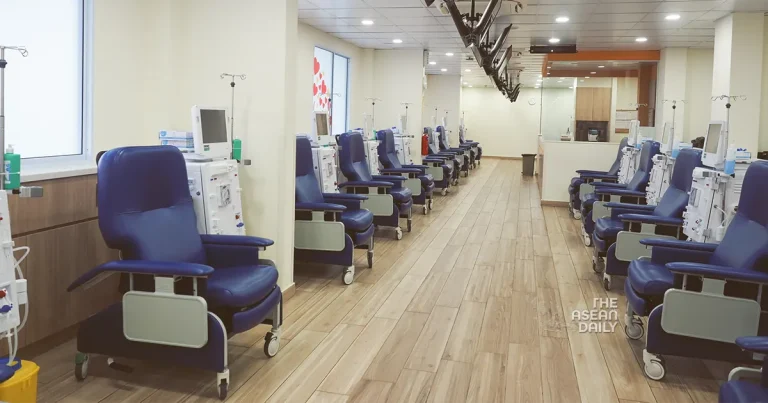16-3-2024 (SINGAPORE) The prevalence of kidney failure in Singapore has surged by 40 per cent in the past decade, with a stark increase particularly among men and Malays, according to recent data.
Among those commencing dialysis in 2022, a disproportionate three in five were men, while Malays experienced kidney failure at a rate three times higher than that of the Chinese population.
In 2022, for every one million Malays, 459 required dialysis, compared to 150 per million for Chinese individuals and 183 for the Indian community.
Kidney failure, also known as fifth-stage chronic kidney disease (CKD5), occurs when the kidneys lose their ability to function properly, leading to the accumulation of waste products and fluids in the body.
Kidney disease poses a significant health challenge in Singapore, where the prevalence of CKD surpasses global rates. The National Population Health Survey 2022 revealed that 14 per cent of the population suffered from CKD, a notable increase from 9 per cent recorded two years earlier.
Experts project that by 2035, approximately one in four individuals in Singapore, nearly 900,000 people, will grapple with CKD. However, a significant portion will be in the early stages of the disease.
CKD progresses through five stages, with stages 1 and 2 considered mild, and stage 5 representing end-stage renal disease where the kidneys are severely impaired or have ceased functioning altogether.
Singapore ranks third globally in CKD5 incidence, trailing only Taiwan and the United States, according to the US Department of Health and Human Services.
In 2021, 2,155 individuals were diagnosed with kidney failure, equating to approximately six new cases daily, an increase from 1,557 cases in 2012, as reported in the Singapore Renal Registry Annual Report 2022. However, data for new CKD5 patients in 2022 were not available at the time of the report’s release.
The number of patients initiating dialysis surged by 50 per cent between 2012 and 2022, translating to four new dialysis patients daily.
A report highlighted that in 2020, Singapore registered the world’s highest proportion of kidney failure patients commencing treatment due to diabetes, accounting for 67 per cent of cases.
To address the escalating numbers, the National Kidney Foundation (NKF), the primary dialysis provider, operates 41 dialysis centres, catering to over half of the approximately 9,000 individuals undergoing dialysis in the country.
In response to the rising demand, NKF inaugurated a new dialysis centre in Bukit Batok in January, with plans for another facility in Sengkang by May and three additional centres by 2025.
According to an NKF spokesperson, the number of patients requiring haemodialysis surged by 72 per cent over the past decade, from 2,672 in 2014 to 4,595 in 2023. Notably, patients receiving dialysis at NKF span an age range from 22 to 96 years.
Despite the concerning trends, there is a glimmer of hope as the median age of new dialysis patients at NKF has increased over the past five years, suggesting longer kidney function preservation.
The escalating incidence of kidney failure is predominantly attributed to Singapore’s ageing population. Adjusted for age, the proportion of individuals with kidney failure has remained relatively stable over the past decade, according to registry data.
With advancements in treatments to slow CKD progression, healthcare professionals remain optimistic about curbing the rise of kidney failure in Singapore.
Regarding the disproportionate impact on men and Malays, Dr Chua Horng Ruey, head of the kidney disease division at the National University Hospital (NUH), noted that underlying medical conditions contribute to their heightened susceptibility to kidney failure.
Dr Yeo See Cheng, head of the renal medicine department at Tan Tock Seng Hospital, suggested a biological explanation, highlighting the potential negative effects of testosterone compared to the protective role of oestrogen in women.
Furthermore, Dr Angeline Goh, a renal expert, underscored the importance of regular medical appointments, particularly for Malays, to effectively manage metabolic diseases and mitigate kidney disease risks.




